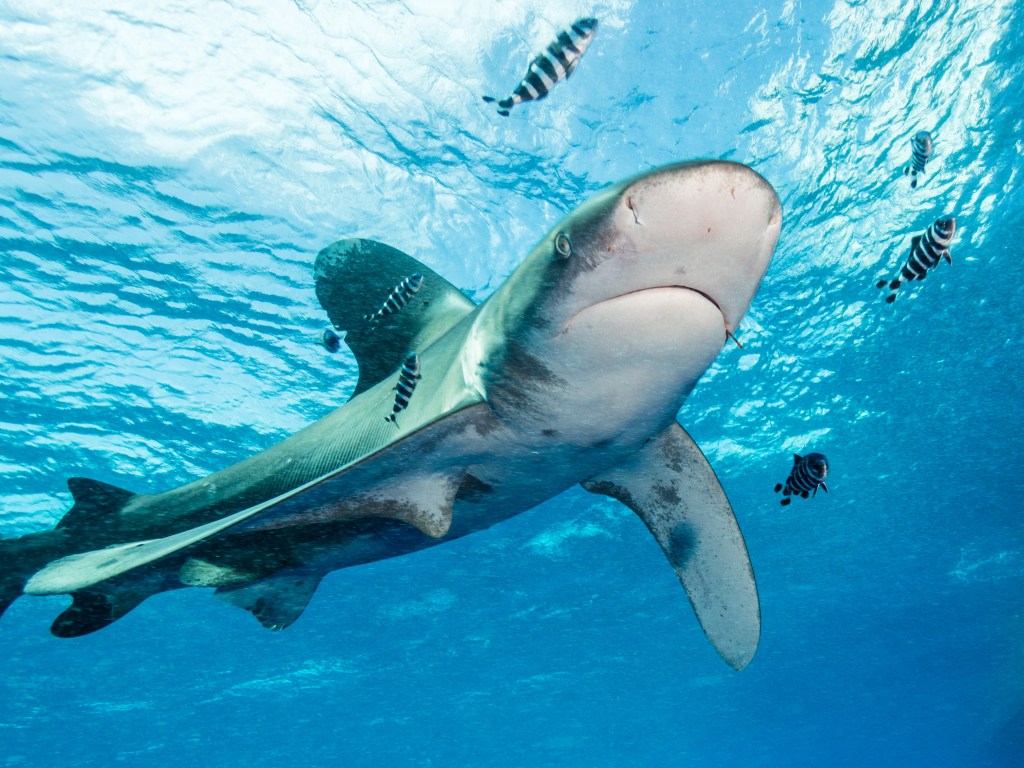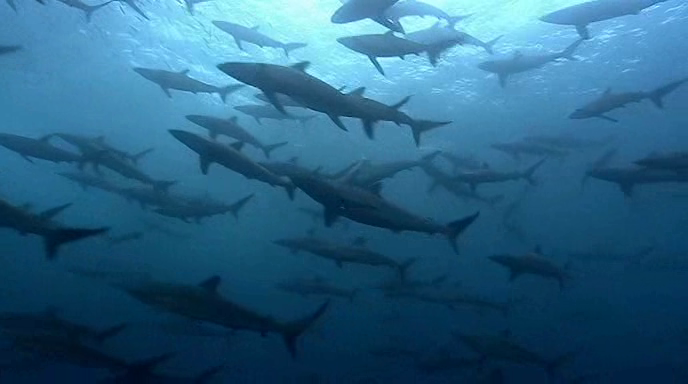Sharks, rays and skates are fascinating creatures and we are losing them at alarming rates!
Whether it’s the diverse and intriguing reproductive strategies, their sensory capabilities or incredible grace and long life spans, sharks, rays and skates deserve better than we treat them.
Some fun facts from the Shark Trust:
- shark skin is covered in tiny teeth called dermal denticles that reduce surface drag and allow sharks to swim fast and near effortlessly
- skates and some sharks affix egg capsules to structures or seaweed for their embryos to mature externally until they hatch several months later, while other sharks keep egg cases within the mother to mature; others still nurture their young through umbilical cords like mammals
- shark replace their teeth every two weeks and they also change tooth shapes to suit the different diets of pups, adolescent and mature animals
- around two thirds of shark brain weight is dedicated to the sense of smell
- Greenland sharks sexually mature at 150 and live to more than 400 years of age
- shark skeletons are flexible, strong and light because they are made of cartilage
- some sharks use heat exchangers to reduce the heat loss at their gills, which makes them more efficient predators
- shark teeth contain pressure sensitive nerves and are used to feel an object to find out more about it in ‘test bites’, which also serve to check whether potential prey is palatable
Sharks, rays and skates are under threat, mainly from overfishing prey, deliberate killing of sharks and by-catch. But international shipping, ecosystem deterioration, pollution, entanglement in ghost nets, climate change and tourism also play a role in the rapid decline of populations. Yet as apex predators, sharks play a key role in maintaining the ocean ecosystem.
At Seas Your Future, we value the ocean environment and one way of protecting its ecosystem is to contribute to ocean science and support the Shark Trust in their work:
- we invite Shark Trust scientists Mark Packer to be Scientist in Residence on the sail training tall ship Pelican of London
- Pelican will serve as outreach platform for the Shark Trust on the open deck in Plymouth (September 2023 – watch this space)
- our sail trainees and scientists use time on board Pelican to include shark sightings in their survey work at sea and look for shark and skate egg capsules ashore

Everybody can contribute to shark, ray and skate conservation. The Shark Trust has launched a citizen science app that globally empowers sailors and sea anglers, holiday makers and beach cleaners, divers and snorkelers, cruise ship and ferry passengers to get involved in their projects ‘The Great Eggcase Hunt’, ‘Shark Sightings Database’, ‘Basking Shark Project’, ‘Angling Project’ and ‘Shark & Ray Entanglement Network’ to contribute to research.
Beyond citizen science, you can support the Shark Trust campaigns for safeguarding the future of sharks by signing pledges, raise funding, join the charity, make a donation, join a campaign or adopt a shark.
The latter I’ve just done. Oceanic whitetip sharks have something in common with cats, as it is their curiosity that makes them easy to catch. In the case of sharks, being caught leads to a cruel and slow death, as their fins are cut off and the mutilated animal dumped alive back into the ocean. Once the most abundant pelagic shark species, oceanic whitetips are now critically endangered globally.
Featured Image: Silky sharks swimming in a group by Satellite TV Lover, CC BY-SA 4.0 , via Wikimedia Commons

